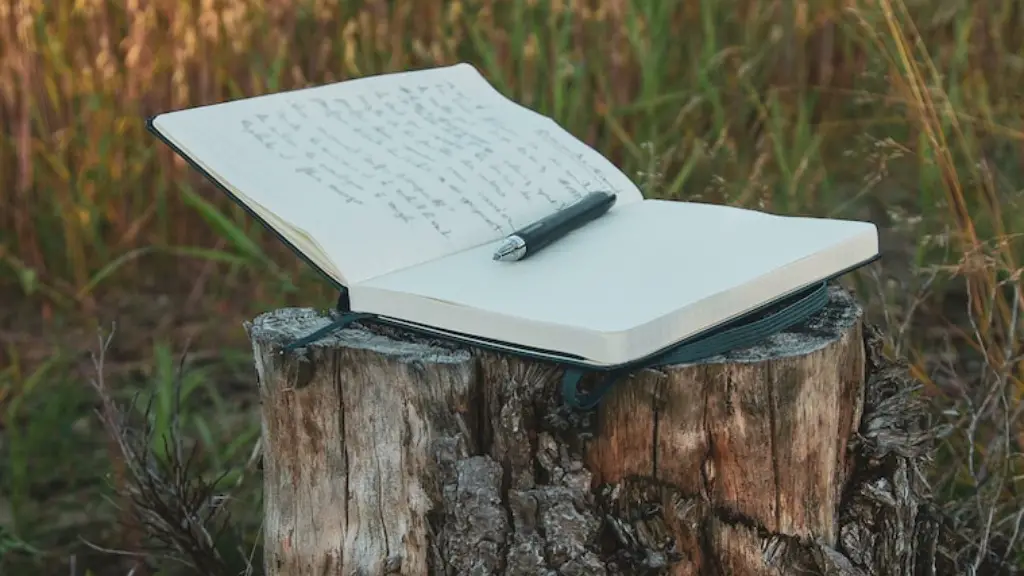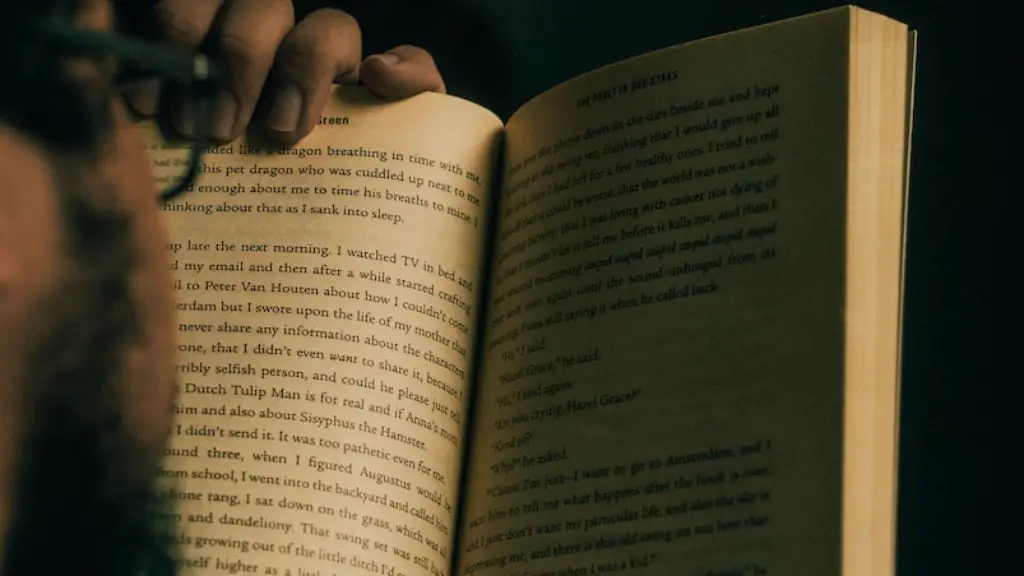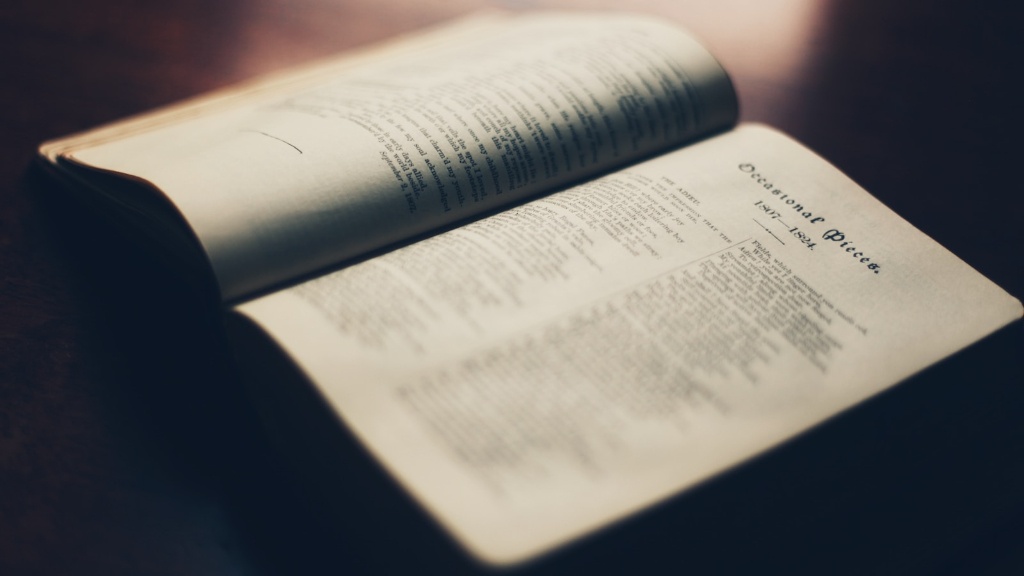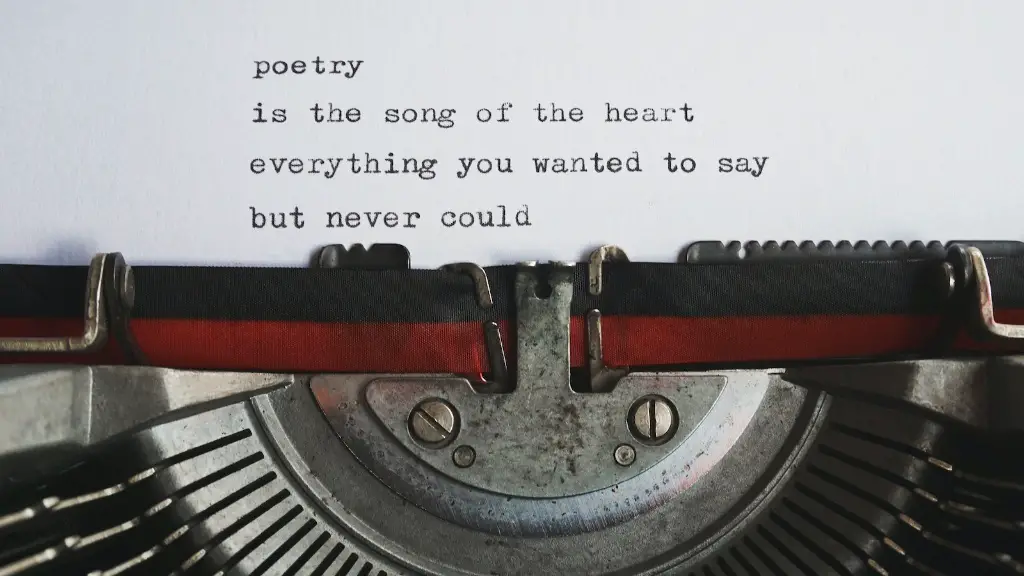Literature is a fundamental art form and an integral part of culture and identity. It has many different genres such as fiction, non-fiction, epics, plays, folk tales, stories, poetry and prose. Prose and poetry, in particular, have their own unique elements, which can be seen in different literary works. Prose and poetry are both forms of writing, but have distinct characteristics and styles.
Prose is a type of writing that is composed of lines that are not written in a regular meter or rhythm. Prose is generally written in sentences and paragraphs, and is the most common style of writing used in everyday life, such as conversations, essays, newspaper articles and books. It is expressive, uses descriptive language and can convey thoughts, ideas and emotions. Examples of prose include novels, short stories, and diaries.
On the other hand, poetry is a type of writing composed of lines written in a regular meter or rhythm. It is often used to express feelings, thoughts, experiences and emotions and often has a musical rhythm to it. Poetry has its own unique style, with different poetic elements such as imagery, metre, rhyme, and alliteration. Examples of poetry are songs, sonnets and haiku.
Prose and poetry in literature can often be seen in combination. This can be seen in works such as plays, with dialogue and stage directions being written in prose and songs written in poetry. Certain authors may also combine the two forms, writing a poem in prose or a story in verse. This can show the versatility of literature and how the two genres can be used together.
Experts suggest that the use of both prose and poetry can create a more effective literary work. For example, the use of poetic devices can add a touch of colour and emotion to prose, while using descriptive and vivid language can add more life to poetry. This, in turn, can help engage readers and capture their attention and interest. Additionally, by mastering both forms of writing, authors can have a wider range of options when developing a story or poem and be able to choose the style that best captures their message and story.
In conclusion, both prose and poetry are essential elements of literature and are often used in combination. Through mastering both these genres, authors have a greater range of choices when it comes to creating pieces of literature. This, in turn, can help authors better convey their stories, experiences and thoughts and engage readers.
The Different Types of Poetry
Poetry comes in many different forms – each with its own unique style. The most common types of poetry include formal, free verse, narrative, lyrical and haiku. Formal poetry is composed of a specific pattern of stressed and unstressed syllables, while haiku is composed of three lines with a specific syllable pattern.
Free verse poetry is composed of lines that are not written in a regular meter or rhythm and is the most common style of poetry found today. It is often used to express feelings, experiences and emotions and does not follow a specific pattern or set of rules. Narrative poems are used to tell a story, often with elements of fiction, and are often written in first person. Lyrical poems often focus on one particular theme, such as love, and can have a free-flowing, musical rhythm.
These genres of poetry can be seen in different literary works and can evoke different emotions in readers. For example, a narrative poem can make use of descriptions and vivid language to draw readers into the story, while a lyrical poem can be used to convey intense emotions that can reach readers on a deeper level.
Writing Poetry for Recreational Purposes
Poetry has many uses and benefits, such as expressing emotions, connecting with readers and deepening understanding of the self. Therefore, writing poetry can be a great way to channel these emotions and express thoughts in different ways. Writing poetry can also be a great way to explore personal experiences, beliefs and messages and can be a creative outlet for anyone who enjoys writing.
It is important for those who are interested in writing poetry as a recreational activity to remember that there are no rules or set guidelines to writing poetry. Poems can be written in any style and with any poetic elements, so it is important to find what is comfortable and explore different ways of writing. Additionally, there is no ‘correct’ way of writing poetry, so it is important to not be discouraged or get overwhelmed.
Writing poetry can be an enjoyable and rewarding activity. It provides a great platform to explore, create and express in different ways and can help readers to better understand themselves and their own emotions and experiences. Everyone has the capacity to write amazing poetry, so it is a great idea to explore this talent and have fun with it!
The Importance of Poetry in Life and Society
Poetry has been used for centuries to convey emotion, explore thoughts and stories and preserve culture. Poetry often has themes of love, loss, joy, pain and other universal experiences, which are often reflected in literary works and can help deepen understanding of life. One particular theme, love, has a timeless presence in poetry and can often be seen as a tool to explore relationships, emotions and life itself.
Moreover, poetry in itself can be a form of resistance and a way to extend a platform of expression to the voiceless. It can act as an anchor to express sentiments, beliefs and opinions and it is a means to stand up for and advocate against injustice. In this way, poetry can be used in life and society to stand up and represent what is right and provide a different perspective on issues that often remain hidden.
In conclusion, poetry can be used to express what words cannot, both in everyday life and in society. It has the power to evoke emotion and convey deep stories, messages, experiences and beliefs. Furthermore, it can be a tool to stand up for and advocate against injustice, giving a voice and platform to those who need it.
Poetry and Mental Health
Poetry has many mental health benefits and can act as an emotional outlet for anyone who is struggling. It offers a creative and expressive platform to express feelings and emotions that may be difficult to explain and it has the power to capture and move readers in ways that words alone cannot. Additionally, writing poems can provide an emotional outlet and a way to look at situations from a different perspective, which can help people to better understand and process their emotions.
Writing poetry can be a great way to facilitate emotional release, providing a safe and private space to express anguish, sorrow and struggles without feeling judged. It can also enable people to put thoughts and feelings into words, which can help to make sense of difficult circumstances and lead to a sense of freedom and relief. In some cases, poetry can also be used as a way to reflect on life’s experiences, express gratitude, feel empowered and gain a better insight into life.
In conclusion, poetry can be an effective tool for managing mental health. It provides a creative and private platform to express feelings and emotions, whilst helping to make sense of difficult circumstances. Furthermore, writing poems can provide insight into life and foster appreciation, empowerment and reflection.
The Role of Prose in Literature
Prose is a common form of writing found in many literary works, such as novels and short stories. It is composed of lines that are not written in a regular meter or rhythm and is used to convey thoughts, emotions and experiences. Moreover, prose allows authors to express their ideas and stories in a more expressive and detailed way than other forms of writing.
One of the most important roles of prose in literature is to propel the story forward. Through vivid and descriptive language, authors can draw in readers and keep their attention by creating suspense and anticipation. Additionally, prose can be used to explore different characters’ perspectives and create dramatic tension. This can be seen in works such as novels, with authors using different prose styles to illustrate different scenes and the way characters interact.
In conclusion, prose has many roles in literature, but one of its main roles is to propel the story forward and maintain readers’ attention. Through vivid descriptions and expressive language, it can create suspense and anticipation and help bring stories to life.
The Power of Language in Prose and Poetry
Language is often used in literary works to express thoughts, feelings, emotions and stories. In prose and poetry, it can be used to capture readers’ attention, evoke emotion and convey powerful messages and ideas. Language can also be used to create vivid descriptions and imagery, by evoking certain sounds, scenes and experiences.
In prose, language can help to tell stories and illustrate characters motivations, drives and relationships. It provides authors with the opportunity to explore different perspectives and emotions and create vivid images. In poetry, language can be used to express a sense of rhythm and music and evoke imagery. Additionally, language can be used to show intensity and power, allowing authors to express feelings and emotions in ways that may not be possible in prose.
In conclusion, language has a powerful impact in both forms of writing. It can be used to convey powerful messages, evoke emotion and create vivid imagery. Moreover, language can be used to explore different perspectives, relationships and emotions and create a sense of rhythm and music in poetry.





